- Home
- News Releases
- Back Issues
- October FY2023
- G7 Trade Ministers’ Meeting in Osaka-Sakai Held
G7 Trade Ministers’ Meeting in Osaka-Sakai Held
October 29, 2023
From Saturday, October 28 to Sunday, October 29, 2023, Mr. Nishimura Yasutoshi, Minister of Economy, Trade and Industry, visited Sakai and Osaka, and attended the G7 Trade Ministers’ Meeting in Osaka-Sakai. At the meeting, as the co-Chair, he led discussions on efforts for maintaining and strengthening the free and fair trading system and enhancing economic security. The participating ministers agreed on a trade ministers’ statement.
1. G7 Trade Ministers’ Meeting in Osaka-Sakai
(1) Outline
- As the G7 host country in 2023, on Saturday, October 28, and Sunday, October 29, 2023, Japan held the G7 Trade Ministers’ Meeting in Osaka-Sakai in person. Co-chaired by Minister Nishimura and Ms. Kamikawa Yoko, Minister for Foreign Affairs, the meeting brought together the G7 ministers responsible for trade. In addition, the outreach session held on Saturday, October 28 brought together ministers of international partners beyond the G7 (Australia, Chile, India, Indonesia, and Kenya), leaders of international organizations (WTO, OECD, and ERIA), and representatives from industry, among others.
- As part of the meeting, four sessions were held on the following subjects: (1) Trade and Sustainability, (2) Ensuring a Level Playing Field, (3) the 13th WTO Ministerial Conference (MC13), and (4) Economic Coercion and Enhancing Supply Chain Resilience. In addition, an outreach session was held for the first time at a G7 Trade Ministers’ Meeting, as an occasion to discuss the enhancement of supply chain resilience together with invited countries and organizations and private companies.
- Moreover, at the meeting and during the exchange of views among the ministers, many participating countries expressed their support for Japan's stance regarding the import restrictions imposed on marine products originating in Japan.
(2) Details of Minister Nishimura’s statements (highlights)
Minister Nishimura made the following statements in the sessions.
Outreach session on enhancing supply chain resilience (served as a moderator)
- It is the first time for the G7 Trade Ministers' Meeting to hold an outreach session to discuss issues with invited countries and organizations as well as with representatives1 of private companies from the G7 countries.
- In the wake of the COVID-19 pandemic and Russia’s invasion of Ukraine, we have experienced supply disruptions in critical commodities and have recognized the risks of depending on specific countries for supplies. Recently, we have also seen some actions to weaponize economic dependencies. We, the Trade Ministers, will seek to address these actions while avoiding falling into excessive protectionism.
- Some private companies stated the importance of diversifying the procurement of raw materials, in particular, critical minerals, in supply chains, and the importance of transparency in the operation of legal and administrative systems in investment destination countries.
- We hope to achieve the enhancement of supply chain resilience through public-private partnerships and information sharing with trusted partner countries.
Note 1. Comments were delivered by Mr. Yasunaga Tatsuo, Vice Chair, Keidanren; Mr. Gordon McKenzie, CEO, Canpotex; Mr. Suzuki Toshihiro, Representative Director and President, Suzuki Motor Corporation; Mr. Takahara Ichiro, Chairman and CEO, Japan Organization for Metals and Energy Security (JOGMEC); Mr. Samuel Morillon, Managing Director Australia and Senior Vice President for Asia Pacific Hub, Siemens Energy; Mr. Jakob Stausholm, CEO, Rio Tinto; and Dr. Vincent D. Mattera, Jr., Chair and CEO, Coherent. As observers, representatives of the U.S. Chamber of Commerce, the Confederation of British Industry, and the Canadian Chamber of Commerce participated in the meeting.
Session 1: Trade and Sustainability -Environment, Development, and Digital- including prospects for MC13
Trade and Environment
- Trade can contribute to solving global challenges through the dissemination of high quality environmental goods and technologies. In this regard, we welcome the fact that the WTO Committee on Trade and Environment (CTE) will hold an informal session focusing on the contribution of trade to addressing climate change by the end of this year.
- At MC13, participating countries should agree to utilize the CTE to coordinate specific initiatives, for example to remove non-tariff barriers, such as regulations, as well as tariffs.
Digital Trade
- Data free flow with trust (DFFT) is an important concept in digital trade which expands opportunities for SMEs and other entities to play an active role in the global economy.
- In order to ensure reliable data flow, we should counter unjustifiable data localization and other measures.
Sustainable Development and Enhancing Inclusivity
- The establishment of resilient and reliable supply chains also contributes to sustainable development through the expansion of trade and investment, including in developing countries.
- Respecting human rights in supply chains is a common challenge for all countries. It is important for the G7 and other countries to cooperate so that companies can address efforts for human rights with predictability in accordance with international standards. A dialogue event on business and human rights was held in Jakarta in September 2023. We would like to promote such cooperation to achieve sustainable and inclusive growth through trade.
Session 2: Towards WTO MC13 (served as the Chair)
- It was significant that the G7 countries were able to engage in frank discussions and share views with regard to the WTO on (1) reform of the dispute settlement system, (2) strengthening the deliberative function (discussions on trade and state intervention, etc.), (3) promoting negotiations on the Joint Statement Initiative (JSI) on e-commerce for substantial conclusion by the end of this year, (4) a moratorium on customs duties on electronic transmissions, and other issues.
- We will continue to work constructively on the process underway in Geneva, and also would like to promote communication among the capitals of each country and international partners beyond the G7.
Session 3: Level Playing Field (LPF)
- The establishment of an LPF worldwide to counter non-market measures is an important issue.
- It is a significant outcome that through this meeting, participating countries were able to share specific concerns about industrial subsidies through funds that are in substance controlled by the state, etc., market-distorting practices by state-owned enterprises, and forced technology transfer conducted in a variety of forms, and to send out a message that we will counter these concerns through the utilization and strengthening of rules and tools.
- Going forward, it is important to take concrete actions to address non-market measures, taking advantage of the WTO and other frameworks as well.
Session 4: Working lunch (economic coercion and enhancing supply chain resilience) (served as a chair)
- Regarding economic coercion, the G7 countries agreed that they share deep concerns about actions that weaponize economic dependencies and will share information rapidly and coordinate to respond to coercive measures.
- Also, the importance of outreach to international partners beyond the G7 and of communication with businesses about the possibility of inadvertently contributing to the actions of coercing countries were pointed out.
- Regarding the enhancement of supply chain resilience, we shared (1) the need to reduce dependence on specific countries, (2) concerns about recent export control measures on critical minerals, and (3) the need to reach out to the entire world, including the Global South, rather than working only within the G7 countries. In addition, we confirmed the need to continue discussions as the Trade Ministers’ Meeting, which started the formulation of the principles on resilient and reliable supply chains.
(3) Outcome documents
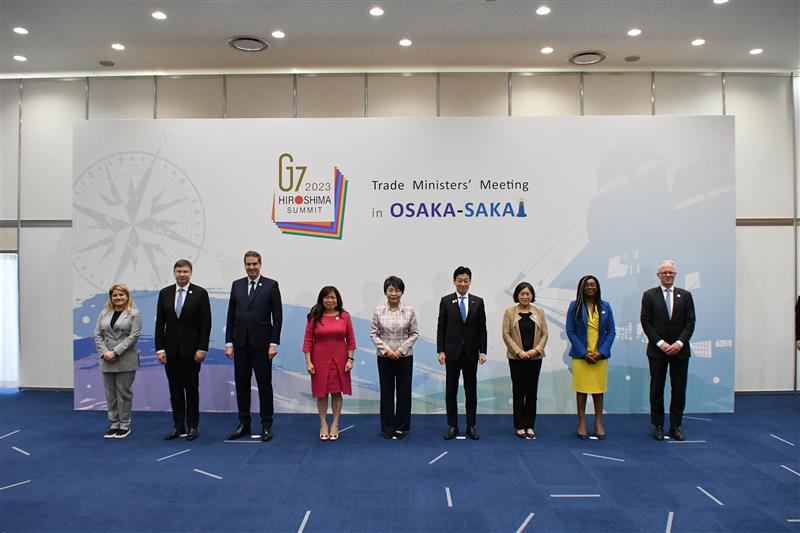
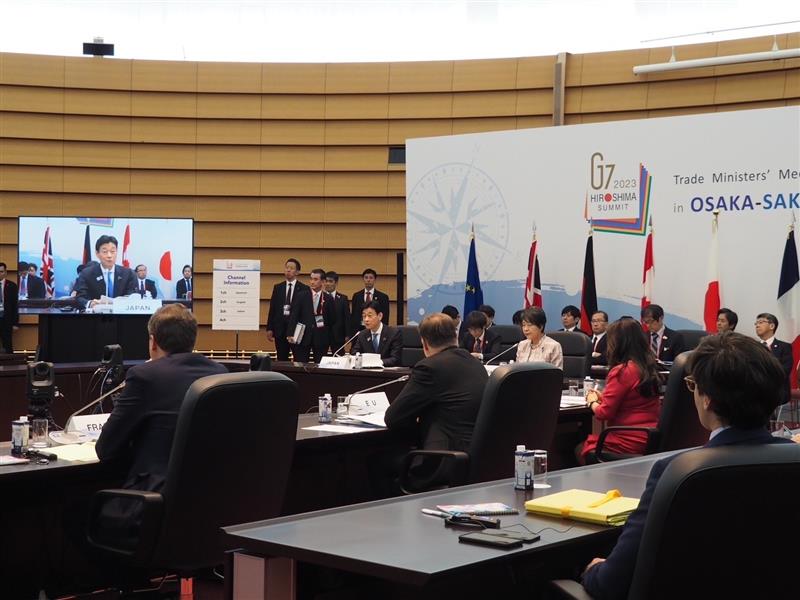
(4)Related Document
2. Exchanging views with participating ministers and others
(1) Meeting with H.E. Mr. Piyush Goyal, Minister of Commerce and Industry, India
The two sides exchanged views on further deepening Japan-India economic ties through such initiatives as the Japan-India industrial co-creation initiative. They also confirmed that Japan and India will continue to collaborate on global issues, including enhancing supply chain resilience.
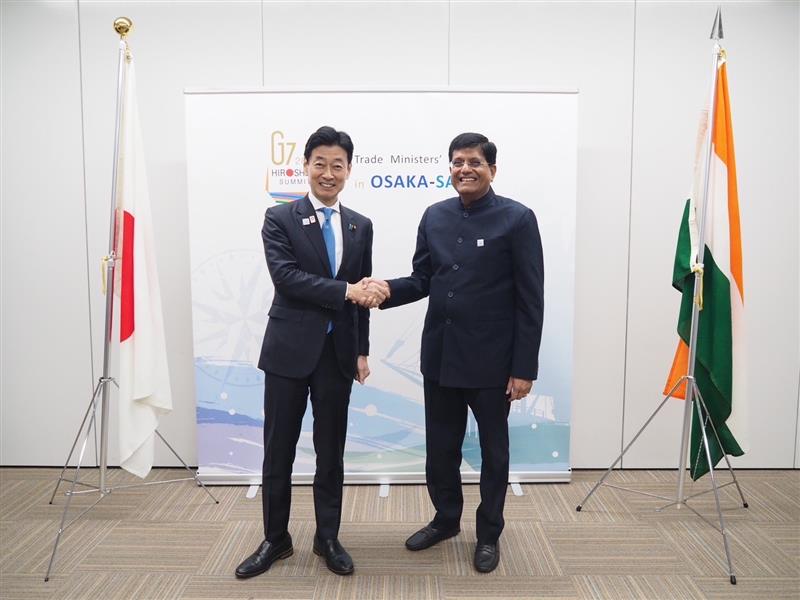
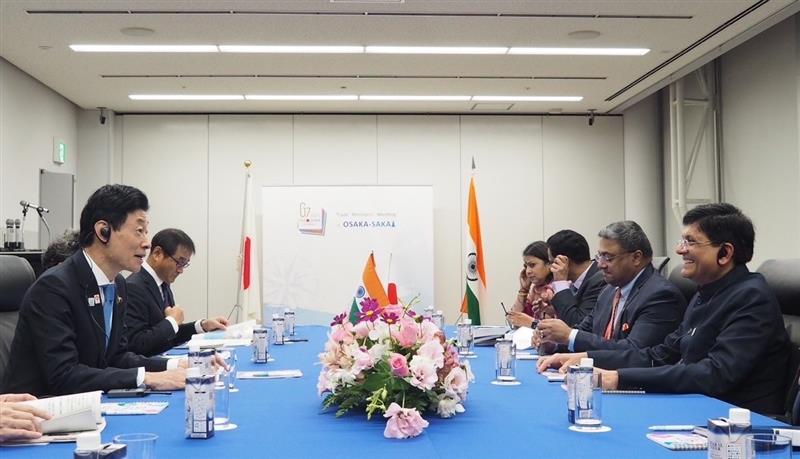
(2) H.E. Ms. Kemi Badenoch, Secretary of State for Business and Trade, the U.K.
Japan and the U.K., a strategic partner of Japan, confirmed the direction of collaboration in the WTO and CPTPP, and the two sides signed a memorandum of cooperation for strengthening bilateral relations in the field of critical minerals between the countries.
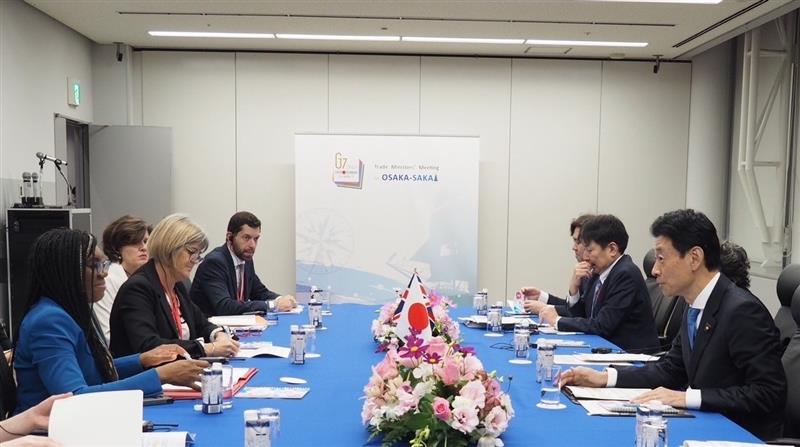
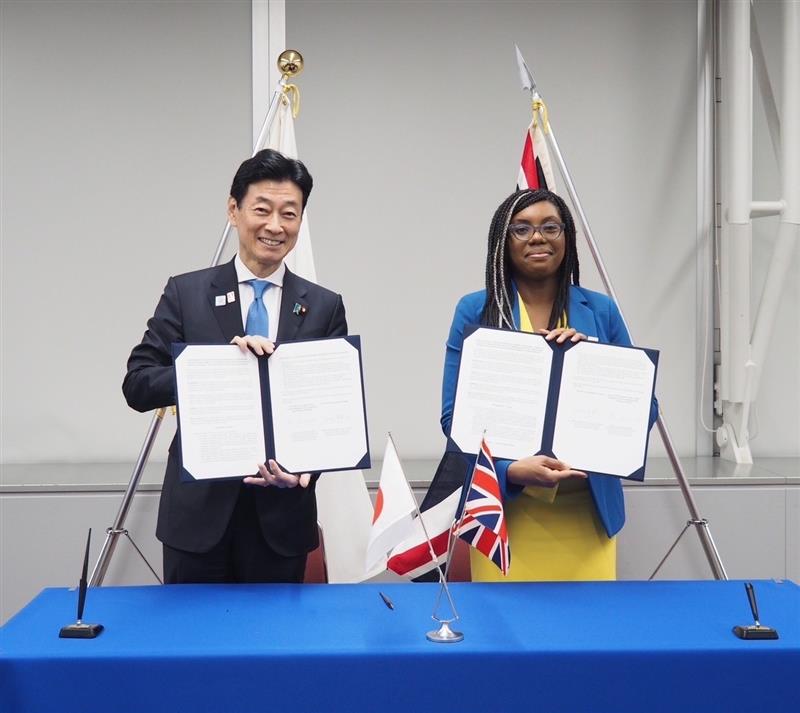
(3) Meeting with H.E. Dr. Ngozi Okonjo-Iweala, WTO Director-General
The two sides exchanged views on the restoration of the dispute settlement function, the moratorium on customs duties on electronic transmissions, and a level playing field in preparation for the MC13 to be held in February 2024.
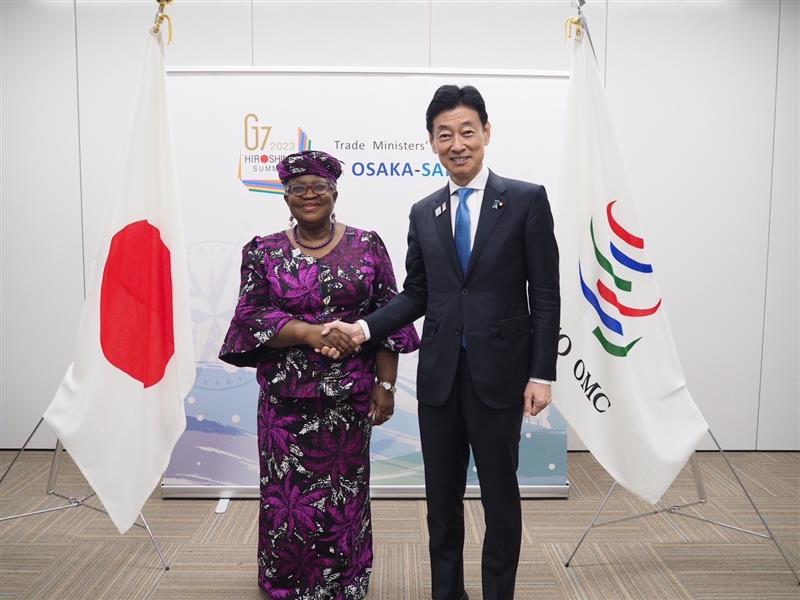
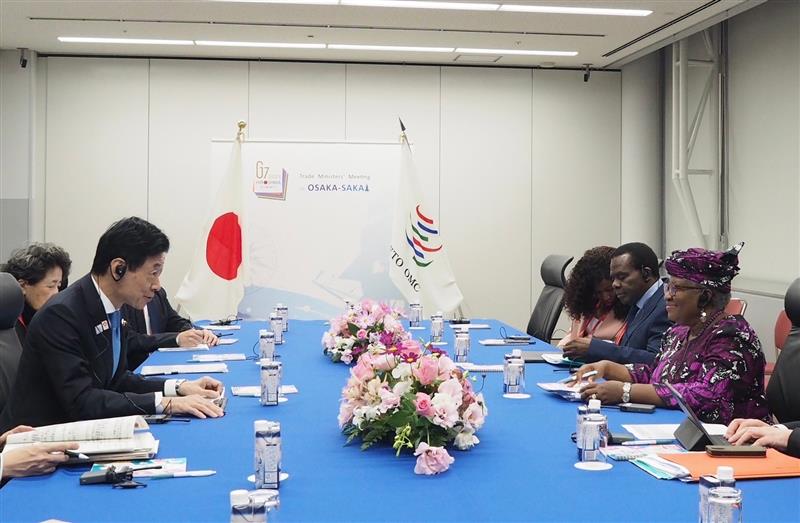
(4) Meeting with H.E. Ms. Rebecca Miano, Cabinet Secretary for the Ministry of Investment, Trade, and Industry, Kenya
Japan and Kenya, a country with one of the largest local bases for Japanese companies developing business in Africa and attracting attention from many Japanese companies, agreed to launch an industrial policy dialogue and signed a joint statement on industrial cooperation as efforts to further deepen discussions on the field of industry.
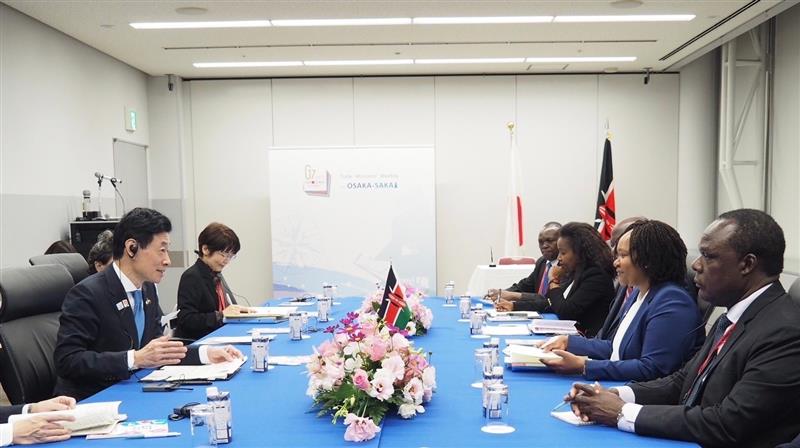
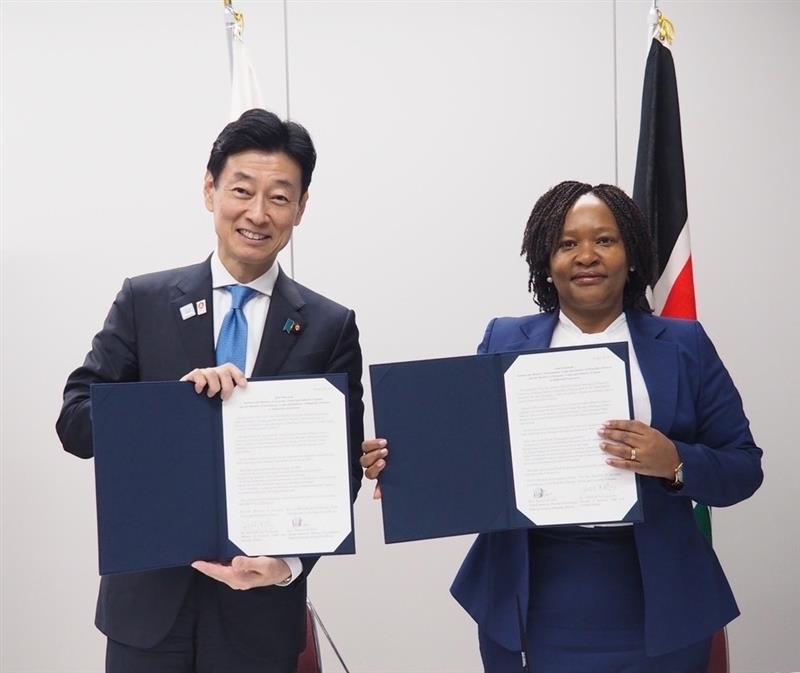
(5) Meeting with H.E. Dr. Zulkifli Hasan, Minister of Trade, Indonesia
Japan and Indonesia, a comprehensive strategic partner of Japan, confirmed that they will continue to work together in the field of trade, including the WTO and RCEP, in particular toward the early conclusion of the review of the Japan-Indonesia EPA. In addition, in light of the commemoration of the 50th year of ASEAN-Japan Friendship and Cooperation this year, the two sides also exchanged views on strengthening the ASEAN-Japan partnership.
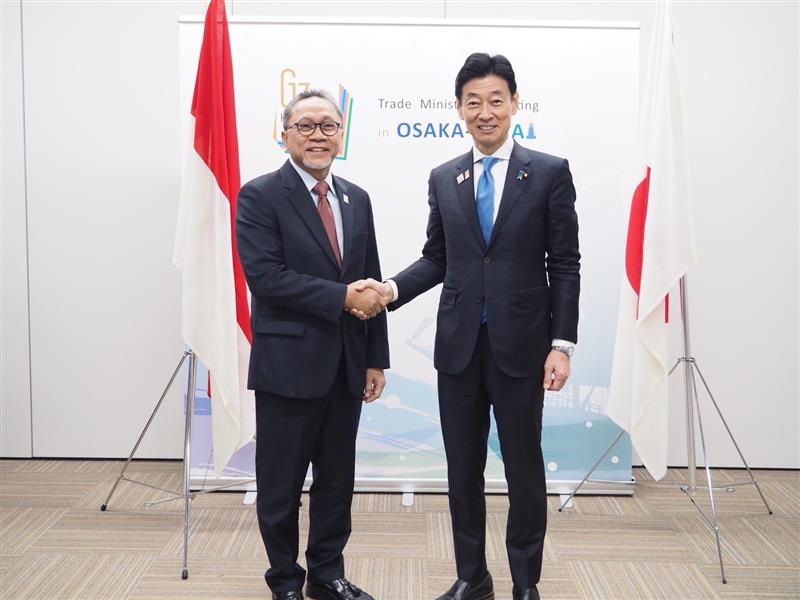
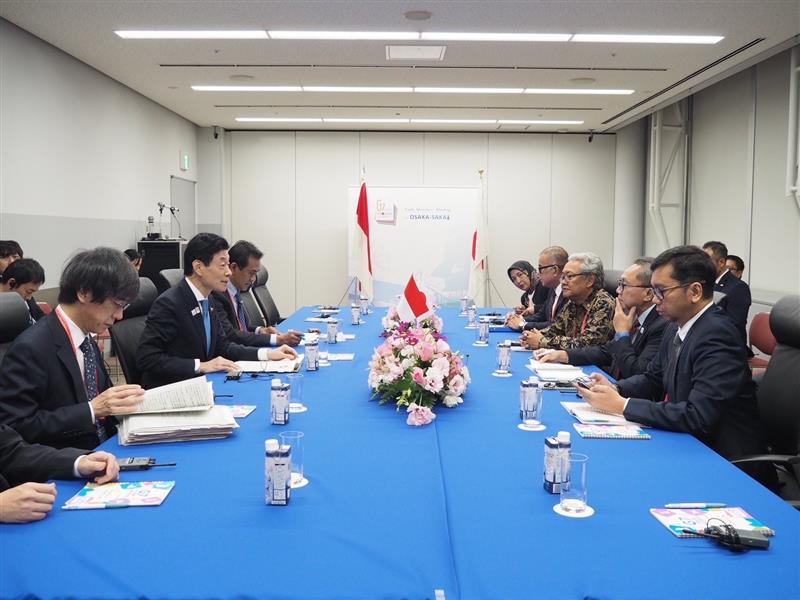
(6) Meeting with H.E. Mr. Don Farrell, Minister for Trade and Tourism, Australia
Japan and Australia, a special strategic partner of Japan, mutually confirmed the importance of Japan-Australia collaboration, such as cooperation in the field of trade, including the CPTPP.
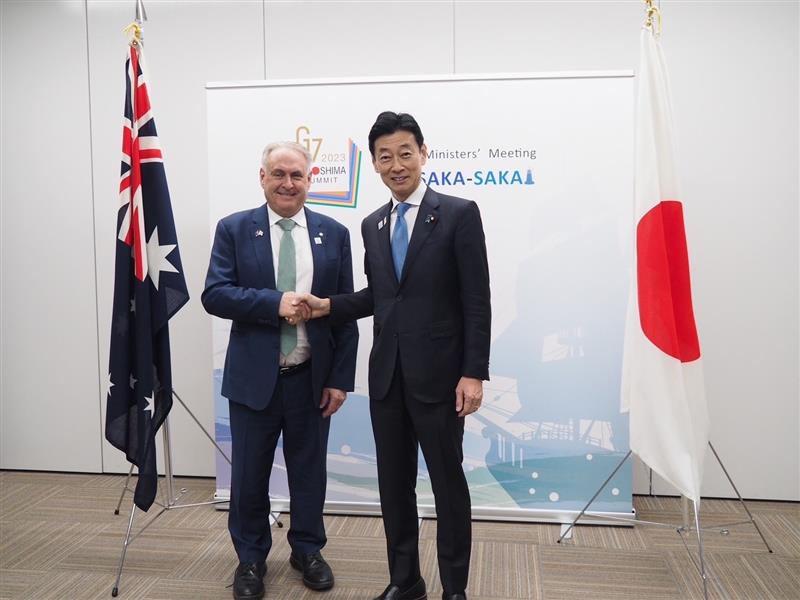
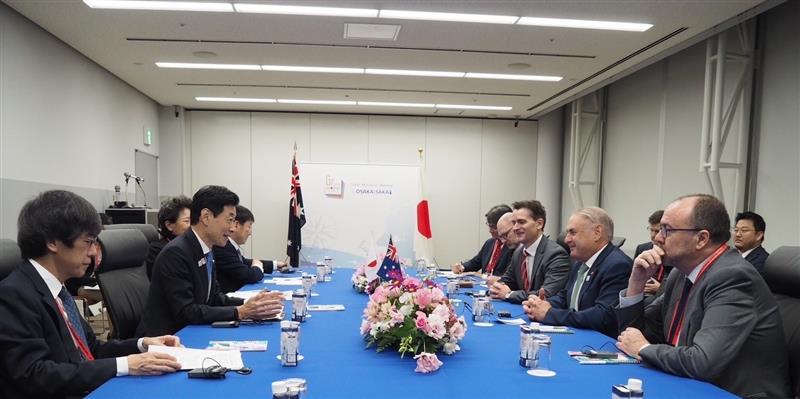
(7) Meeting with H.E. Ambassador Katherine Tai, United States Trade Representative
The two sides exchanged views on WTO reform, ensuring a level playing field, taking actions to address economic coercion, enhancing supply chain resilience, and other issues, and confirmed that Japan and the U.S. will work closely together on the IPEF, placing the field of trade at the core. Also, Japan expressed its appreciation for the understanding and support of the United States regarding the discharge of ALPS treated water into the sea, and stated that it would continue to collaborate with the United States.
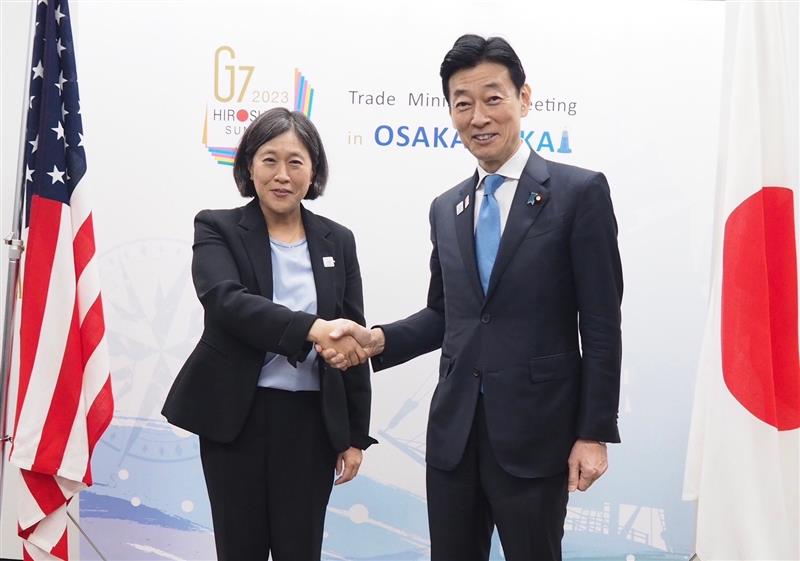
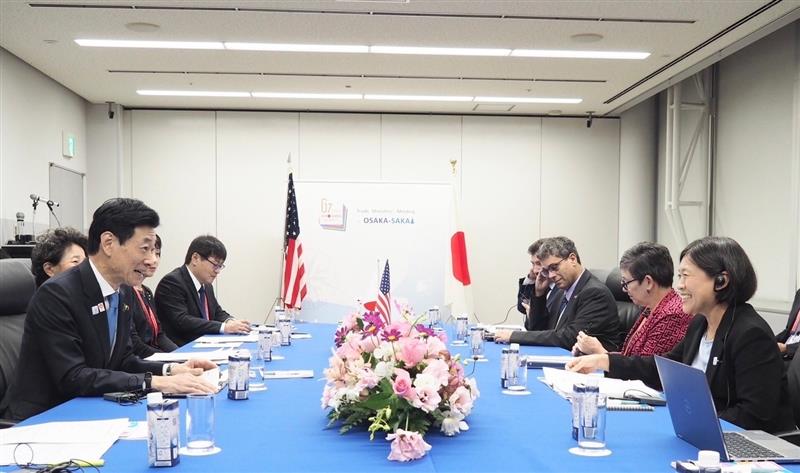
(8) Meeting with H.E. Mr. Olivier Becht, Minister Delegate for Foreign Trade, Economic Attractiveness and French Nationals Abroad, France
The two sides exchanged views on critical minerals and the G7 Trade Ministers’ Meeting, focusing on economic security. They also confirmed that Japan and France will continue to work together on cooperation in innovation as well.
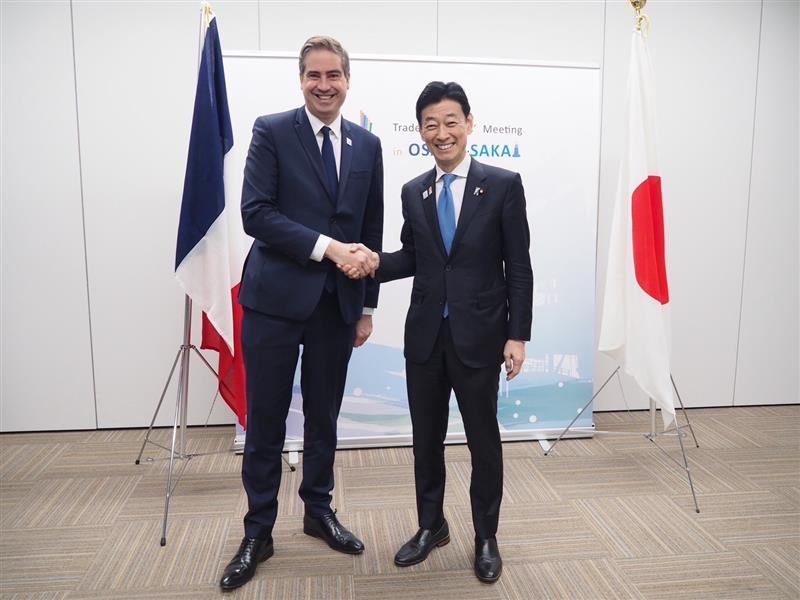
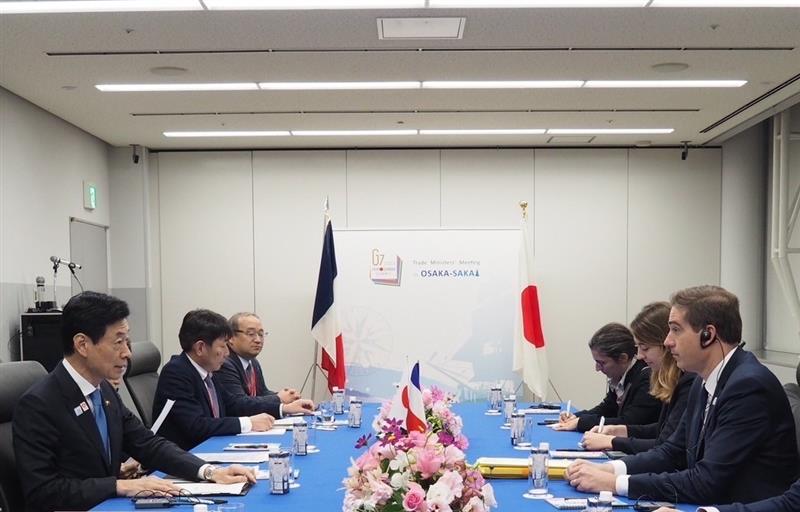
Division in Charge
Multilateral Trade System Department, Trade Policy Bureau